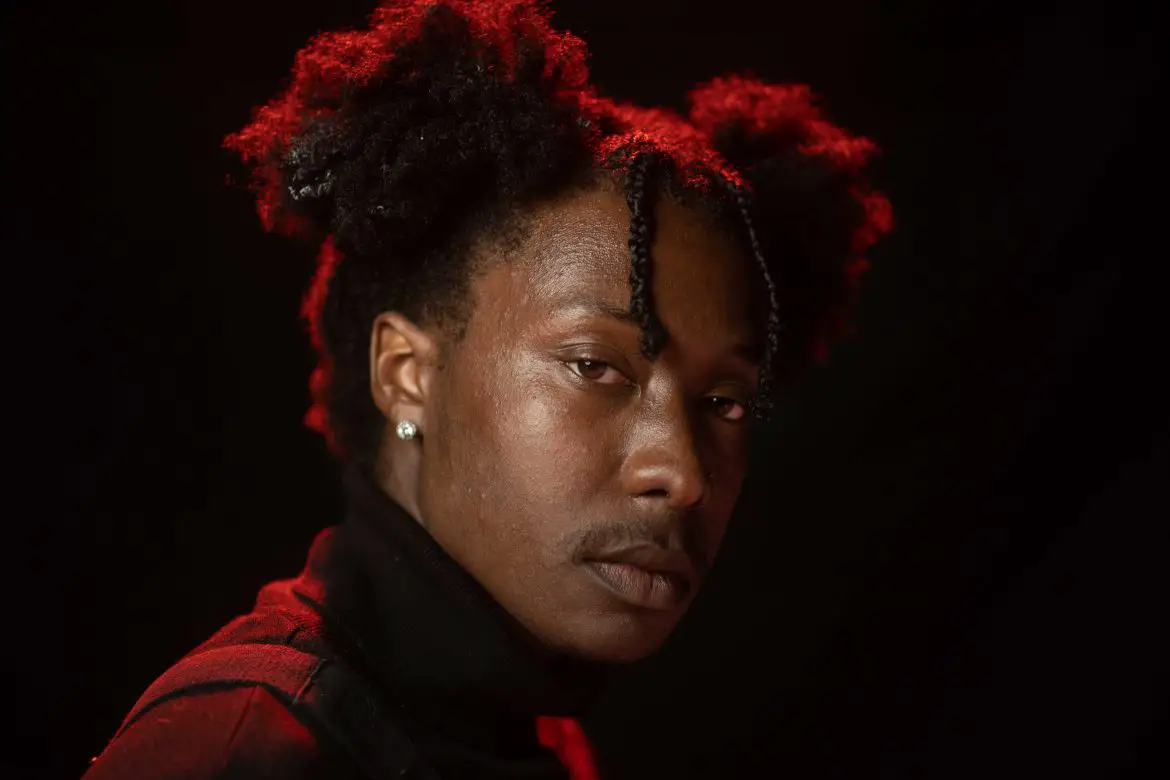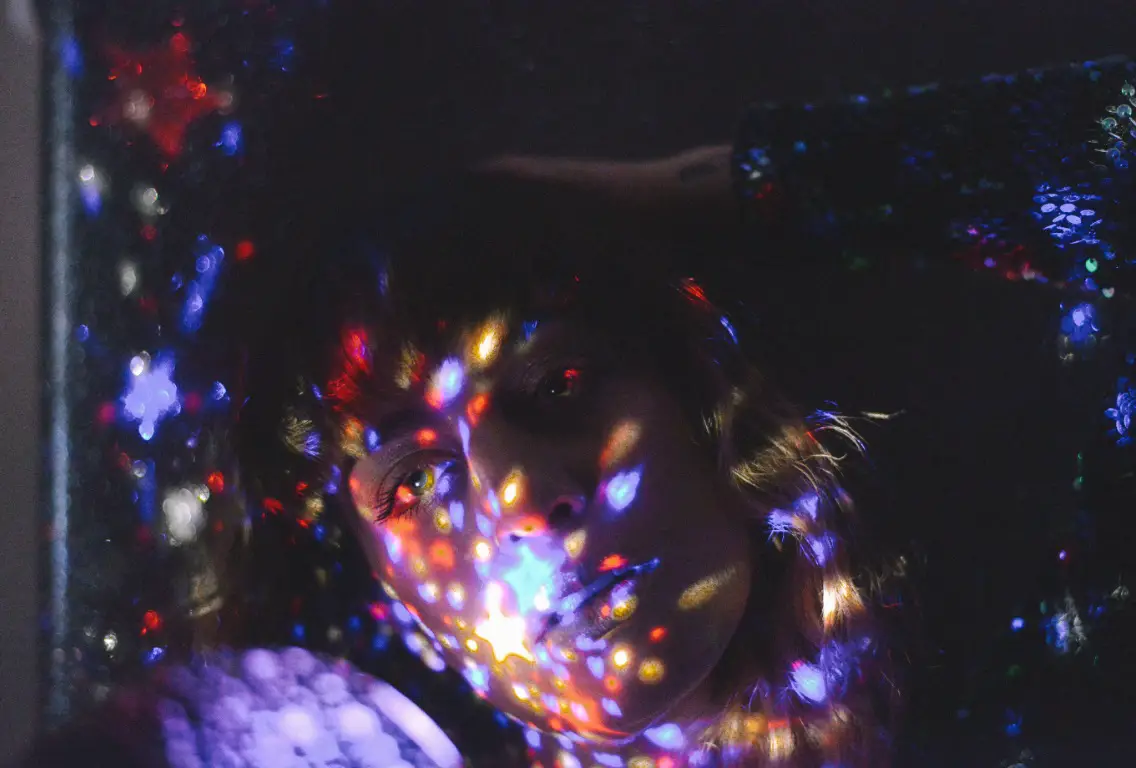There was a time when McKinley Dixon shirked the moniker of rapper, now he has come to embrace what he calls the power in Blackness. We sat down with Dixon to discuss what changed with the release of his new record ‘For My Mama And Anyone Who Look Like Her’, out on Spacebomb records now.
‘For My Mama And Anyone Who Look Like Her ‘ – McKinley Dixon’
“Want this to sound soft like poetry/
But came strong as her veins/
Under the sun, you can see blemishes/
Under my blemishes, sun still remains.”
–“protective styles,” McKinley Dixon
Ask McKinley Dixon when he recognized his handle as a rapper and he will admit that the timeline is fuzzy.
For a period between his first and third efforts, he juked any effort to tag him with the title, fearing the sobriquet to be a critical cul-de-sac of style, a no-exit dispensation to muzak.
Listen to Dixon’s debut mixtape/album — even he isn’t quite sure how it qualifies — Who Taught You How To Hate Yourself, and one will sink into a hip-hop groove that harnesses a jazz-classical cadency with ease. Engage the second offering, The Importance of Self-Belief, and listen as Dixon embraces soul power and gospel for liberation.
In truth, he’s mostly still under wraps as a popular rapper. Lonnie “Pops” Lynn — who is decidedly not McKinley Dixon’s contemporary (he’s actually Common’s recently deceased father) — once remarked, however, that “true hip hop is just like the Underground Railroad, if the message is not for you, it can sit on your nose and your brain remain froze.”

Now, signed to Spacebomb, Dixon’s label debut For My Mama And Anyone Who Look Like Her is heating up the presses. Dixon’s been named Consequence of Sound’s artist of the month, featured on BandCamp’s own editorial page and enguled with interviews. Here at Atwood Magazine, it’s no different and the chance to mix words with this rising MC was not an offer to be passed up. The conversation spanned all of his first three records, bouncing betwixt the boxes to find some semblance of true hip-hop.
Dixon worked with producer/arranger Onirologia for a third time to craft the record. Together they have solidified the signature sound of McKinley Dixon the persona. It’s not perfect—some times the harp still melds into the mix and becomes damn near impossible to distinguish—but it’s impressive how a sound five years old at this point still sounds so raw.
Normally a critic talks about artists “smoothing out the rough edges” with each successive but Dixon starts his third like a stiletto; twisting and spitting the opening to “Chain sooo Heavy.”
The song has been in his repertoire since before 2018 and bebops its way from big-band to gospel to straight-out scat. The saxophone blisters with him as fingers are twisted into guns. Dixon’s voice follows an internal momentum, speeding for intensity, rolling on exhaustion.
The cut emphasizes a greater control over his message: that in Blackness lies a bridge through history and that in hip-hop lies the power to cross it.
•• ••
A CONVERSATION WITH MCKINLEY DIXON

Atwood Magazine: What would you say the meaning is behind For My Mama And Anyone Who Look Like Her?
McKinley Dixon: The meaning behind that title is that the books I used to read were being made by Black people and they would have to have these titles that are kind of shocking… The title “make a poet Black” is from an older book and the cover is just [those words] in red and the background is black. It’s this really cool 20th century book. I think a lot of old authors that I look up had to do that.
For My Mama And Anyone Who Look Like Her is a strong enough title that encapsulates a lot for the album… These are stories and tales for these people who look like my mom whoever they are whatever their background is, the culture of Black people.
In the press release you mention the concept of home as one very important to Blackness and how Black artists are afforded the ability to straddle space and time and dissect the personalities of past and present. Where do you think this skill comes from?
McKinley Dixon: I think a lot people don’t know that they’re doing it when they do it but I think that Blackness has, inherently, storytelling and history to exist.
When we view time as something that can be conquered we don’t see the little things that can be considered as time travel. Time travel is something we think we can control and we can use and manipulate but time travel is something as simple as me hearing a story that reminds me of my past while somebody’s talking about their past.
When we view time as something that can be conquered we don’t see the little things that can be considered as time travel.

You said that Who Taught You To Hate Yourself? was more beats-focused but it also has a bit of classical elements there, who brought those classical elements to that album and did you bring (those elements) to For My Mama And Anyone Who Look Like Her as an intentional thing, as a bridge from album one to album three?
McKinley Dixon: I kind of knew I wanted to do something bigger and more experimental from rap. And since because I didn’t have the language musically, I thought “what was the obvious opposite?”
With The Importance of Self-Belief, I tried to hone a little bit more with “Trouble Everyday” where it’s literally just orchestral music.
After all that and after listening to more artists, hearing how other people incorporate all these different elements into [music,] For My Mama kind of became this thing where it’s like… I can just go to jazz where jazz is chaotic enough it can kind of rival any genre and be the antithesis… if really you want it to be. So, leaving home led me back to it.
You’ve done something that I think has eluded Miles Davis, y’know, the jazzheads who always wanted to combine fundamentally Black music with fundamentally White music, combining jazz with classical is something has been the great enigma since jazz was invented.
McKinley Dixon: Everything I know comes from someone before me. There’s just so much music out there so there’s probably plenty of Black women who have done what I’ve done. I don’t think anything really sets me aside, I think it’s who I am, definitely, but I draw so much from like Kamasi Washington.
I started looking at how he arranges things, and he also was on To Pimp A Butterfly, which is really cool because a lot of people think my sound is related to [that album] – when my sound really comes from Kamasi.
You also introduce new stuff though, there’s this Arabesque melody in the opening in “make a poet Black,” where did that come from?
McKinley Dixon: Yeah, so, it’s funny ‘cuz I was walking down the local block in Richmond and there was this cat, Patrick Confortola playing on the street with his little dog, Reptar, playing [the Koto]. That’s not an instrument you just see on the street every day.
So, I walked up to him and… one day, in the following weeks, I went to his house and we recorded thirty-minutes long of him just playing and then I only found ten seconds for chorus and the verse and just looped it up, and that’s where that came from.
•• ••
Dixon professes on the press release that one of the most empowering aspects of Blackness is the ability to craft a sense of time and place, particularly one of “home.”
It reveals two truths, the first being that the evolution of Black music is like watching one home transport in one place over four centuries. The structure and foundation are the same, but the interior changes with each successive generation.
Dixon’s style recalls the wordsmithing prowess of the once-underground legends A Tribe Called Quest, Jurassic 5 and the Soulquarians mixed with modern hip-hop soup of melodic rap and the cutting, sampling opuses of new jazz titans Robert Glasper, Jeff Parker and Kamasi Washington.
That the future of jazz balances on the history of hip-hop has been the blatant truth since Q-Tip himself declared “Daddy, don’t you know that things go in cycles?” from the opening sounds of The Low End Theory. Wherein all the aforementioned influences used hip-hop techniques to sample jazz greats, among others, Dixon plays the reverse, favoring to front a live band.
Dixon professes a deep admiration for the chronoskipping skill of Kamasi Washington, who in turn, he reminds, has worked on Kendrick Lamar’s own out-of-time opus, To Pimp A Butterfly.

Certainly, Dixon’s Spacebomb debut has the same time traveling quality that made that story so celebrated. The leading single, “make a poet Black” juxtaposes a knifing koto with a spidery piano break and orchestral string sections.
There’s a comparison to be made to Lamar’s own oeuvre. The poem which lined every cut on To Pimp A Butterfly deals much with the rigged game of a rapper’s paradise. Dixon instead threads that thought deep into the fabric of “make a poet Black.” It’s a titular sample of J Saunder’s poetry anthology and it all rests on the hilt of Dixon’s own unhinging lyricism about the rapper’s game as a false deliverance.
Dixon does admit he finds it frustrating when people hint he is simply warming the throne for Lamar. He doesn’t shy away from the similarities, however, nor does he identify himself as the King. That’s just not his bone to pick.
The second truth came when Dixon’s concept of home and hip-hop, time and place tinted my thoughts while listening, once again, to Nicolas Jaar’s rework of Mike James Kirkland’s “Doin’ It Right” wherein, Jaar recuts the opening line into a soul-crushing finality: “this old house is all I have.”
Dixon’s third album in four years steeps in the sense that America is that old house and that Dixon is searching for some therapy somewhere within its walls. The svelte, homely, Soul-crushing cut “protective styles” says as much.
“Pardon my Black ass,” Dixon interjects the Stevie Wonder bass with Richard Pryor flair, “but my n***** need the-rap-ay.”
“Pardon my Black ass/ but my sistas need ther-rap-ay,” he repeats, cementing his reframed cause: psychological liberation.
Like the cello’s bow that follows his voice, Dixon holds the note on a deep soulful healing, something that reaches from the speaker straight into the chest and cradles it with the delicacy of a gardener tending his flowerbed. A purpose that will take months, years, decades, generations even, to nurture.
Dixon states he received the line from friend and graphic artist Malcolm Peacock in a spur of the moment. The lyrical turn broaches a cultural dialogue mental health with Pryoresque humor. No one album, much less song, can redress institutional racism, fully treat its wounds or fade its scars. However, Dixon’s lyrical inspiration performs what no insurance policy or reparation payment could: he addresses the psychological medicine it will take.
His music is an epiphany delivered in comedy, but not a cure presented on a platter.

•• ••
Atwood Magazine: The song “protective styles” employs the phrase “pardon my Black ass” in a way that is a desperately beautiful plea for recognition and also elicits a laugh from me in a way that Richard Pryor would elicit a laugh from me. It lends this kind of sincerity. Do you find that there was comedy in that phrase when you employed it and do you think that comedy, intended or unintended, helps music in conveying a message?
McKinley Dixon: That whole line was from my friend Malcolm Peacock and I like using comedy as a sort of switch up. My music is so serious to your average listener and people will think I am so serious because I do that kind of stuff.
I just kind of think that there’s so much in Blackness that it’s natural for me to be sometimes stoic… but that line by Malcolm was just so brilliant… And then the next line is serious. But the sting of the seriousness actually comes from the comedy. I want to do more comedy for the next album.
“protective styles” uses a bass groove that reminds me a lot of Stevie Wonder, was that intended?
McKinley Dixon: Yeah, I was listening to a lot The Secret Life Of Plants when creating this album. It definitely has this upbeat rhythm. The kind of unprompted, unknowing happiness that comes with that third Stevie Wonder album. I really enjoyed the melodies on that piece of work.
While I was doing research, I stumbled on this quote where you decried the double standard of rap and music criticism for tossing around the term “genre-bending” willy-nilly, regardless of truth, while most rap albums are considered just rap and that’s it. Where do you feel this double standard comes from?
McKinley Dixon: The double standard comes from not being seen as music that skills and takes effort and that cannot be critically challenging because people don’t view it as something that uses instruments. When you’re locked into an instrument you have these preset categories, but in rap music it’s wild that technically somebody rapping could do it over anything… It’s just easy for people to say what they know is genre-bending when they’re not used to the fact that rap is so multi-faceted.
EVERYBODY ALBUM IS GENRE BENDING UNLESS YOU MAKE RAP MUSIC. So many of y’all DONT make “genre bending” music but publications love throwing that word around. Until a rapper make things that goes into other genres then it’s “the all encompassing umbrella of rap.”
— my father's name (@McKinleyDixon) April 15, 2021
Would you say genres in America have a racial layer baked in?
McKinley Dixon: One-hundred percent.
How would you say that affects a Black artist in America today, do you think that is a handicap?
McKinley Dixon: Yes, it’s a handicap on both sides, because since there’s not much space for rap music a white audience will make rappers within the same category have competition. Then you, as the rapper, start to internalize it because you hear it so much. Top Dawg [Entertainment] just announced they’re going to release a new artist, a new song and a lot of people were like “if it’s not Kendrick, then I don’t want it.”
That kind of others the six other rappers on that label… There was a point where rappers didn’t put their stuff on BandCamp and BandCamp is such an incredible tool and resource that’s available to you… It’s definitely hard for a rapper who doesn’t have the language for these kinds of things to see themselves as making rap music and traveling and doing all these things that other genres are “allowed” to do.
Do you look to create music that breaks this paradigm or do you just make music that satisfies and interior criterion?
McKinley Dixon: At one point I didn’t want to be considered a rapper because I thought rap was so limiting to be called that.
I think there was a lot of internalized angst on my part based off those around me so at one point I didn’t want to be a rapper. But now, I love… being a rapper that can do live shows with punk bands. I love being the only rapper in a room full of non-rappers because then everyone is asking what the fuck is going to happen next.

At one point I didn’t want to be considered a rapper because I thought rap was so limiting to be called that. I think there was a lot of internalized angst on my part based off those around me so at one point I didn’t want to be a rapper.
Genre-bending is going to be what happens next.
McKinley Dixon: Exactly, a crazy set is going to happen next.
What do you think of the term “social-consciousness rap” is there an argument to be made that all rap is socially conscious?
McKinley Dixon: That is the exact argument that should be made. Consciousness is just thought. If there are rappers whose consciousness is having sex all day, every day, then that is conscious music right there. If there’s another rapper who is like “Black oppression is what I see and what I think every day” then that’s also consciousness.
Blackness is so inherently political in the West that people don’t actually realize that I’m just talking. I’m not saying anything specific, I’m just talking about my experiences that happen to overlap so easily with other people that are Black because the Black experience is so easily politicized.
Blackness is so inherently political in the West that people don’t actually realize that I’m just talking.
•• ••
The corrosive drama of “make a poet Black” sets the table for the reparative admission that renders “protective styles” animus so compelling.
The guitar intro emulates a sound normally derided as Sesame Street souljazz when used as pastiche, but here on For My Mama, it works. Dixon reclaims some safe space for Black psychology. It’s a less bombastic sampling of a similar emotion that made Chance’s “Same Drugs” so addictive.
Dixon is able to capture his joy and misery in words that are as poetic as they are punishing. He cuts with a gnashing of the teeth and sings with a baritone of soul. While mumble rap can trickle into his execution, he doesn’t rely on it.
Like his Soulquarian roots, Common and Mos Def, his vocabulary is refined yet delivered raw and ready. References to sun and light as both an oppressor and animator abound his lyrics. Dixon reclaims natural hair and blockwide scenes to key in his listeners to the setting. And the proverbial chain, so heavy, swings like a pendulum between liberty and slavery.
He slices bars like a guillotine, rolling the body of his sentences and then cutting them at the last word. It’s a tactic he uses to great effect on “protective styles,” “Mama’s Home” and “Twist My Hair” as a finishing touch where his forebears would employ it as an opener or ensconce it in the verse.
His supporting musicians help him showcase emergency, therapy and debauchery with deft touch. “B.B.N.E.” features a delicious electric bass and emotive mourning violin. The rest of the strings imitate klaxon emergency service sirens, mirroring the nihilistic menace in Dixon’s lyricism with the tragedy of senseless violence.
For the banger-curious, Dixon produces the purple drank drenched vocals of “Swangin’.” The jarring rhythmic swagger of a man unleashed on the block betrays none of Dixon’s daring musicality. Still, a harp, lain across the song, accents a jazz quartet of piano, bass, drums and electric guitar.
While the record doesn’t embody the same novelty or immediacy as his first, nor empower like the second, it’s more therapeutic. For My Mama And Anyone Like Here plots Dixon embracing the right to be angry, to be scared, to seek shelter.
“Mama’s Home” showcases all three points, featuring that elegant (and sometimes subtle) harp, a jazz flute and supporting piano. The instrumentals of this song are simultaneously nothing new to Dixon’s music and yet beyond belief, embedding the strings among a soul-infused hip-hop duet. Dixon and Alfred. collapse all of the themes of time-travel, home and Blackness into a juxtaposition of childhood lessons and dreams of Peter Pan concluded in a singular, definitive “fuck.”
There’s more release in that single expletive than in most records. And it affords Dixon another chance. One more to dish on the nature of death and consent, contrasting the lack thereof in the narratives of police shootings and “Black-on-Black” crime evident along “Chain sooo Heavy.”
Dixon and Ali Thibodeau (dit Deau Eyes) perform a duet to bear and bare it all over “Twist My Hair,” whether the fear for posterity or the pain hidden in hair. Dixon tightens his rhetoric together and then, to borrow a bar, picks it out, gushing to violins and harps. His breath turns heavy and his sentences spur death in this old house.
In a fell swoop, Dixon reclaims something that skips under the stars of the Big Dipper and along the bars of the Underground Railroad; something that cruises in the neighborhood and bumps in the house party; something that encapsulates the soup of jazz, gospel, blues, soul and cut-up funk that engenders the charismatic nature of hip-hop.
They aren’t all the same song, but they are the same, all equals under the ears of a hip-hop head. What’s true doesn’t even factor into it.
— —
:: stream/purchase McKinley Dixon here ::
— — — —

Connect to McKinley Dixon on
Facebook, Twitter, Instagram
Discover new music on Atwood Magazine
? © David Muessig
:: Stream McKinley Dixon ::









